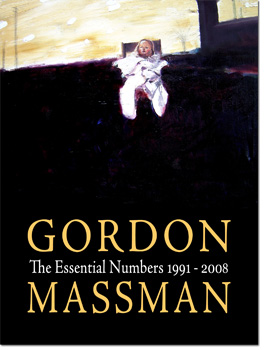The Poetical Taxon: A Questionnaire

My friend Joseph P. Wood wrote an interesting article over at Open Letters Monthly titled, “Taxonomy and Grace.” I think his basic thesis is encapsulated in these lines:
“While creative writing in American literature has always had camps, movements (and the prerequisite back-biting and bickering), I believe our current poetic climate is so conflicted and contentious that we have done away with talking about poems on their own organic terms. Let it be clear: I am not arguing for a return to New Criticism nor do I believe in the overtly easy-blame game of it’s the fault of those fucking universities. We live in the 21st century. What’s the point of asking to return to “the good old days” when those days would have excluded the likes of me — a working class, oddly educated, and peculiarly read writer with gaping holes in my canonical knowledge? I’m suggesting that while it is important to attend to our own academic reputations and political and aesthetic convictions, it is more important that we honor the imagination by not solely treating the poem against a singular interpretive mechanism.”
It might initially seem as though Joseph is arguing against the artist pigeonholing herself, right, by ascribing to one philosophical or theoretical stance, and this would be true, but I think he’s also genuinely concerned with the way we read and discuss poetry, the way we disseminate poetry. Has poetry become such an in-club that we can’t love a poem without ascribing it to a school or a movement? Do we have to know a shit-ton about Wittgenstein in order to speak intelligently about a poem? And as for the artist, is joining the club actually the job, or the business, of a poet (insert artist, writer, whatever besides critic)? Shouldn’t we simply write our way into the world? Are we in an age that forces us to straddle the fence between idea-schools and self-expression? What about the movements that aggregate what their members believe and create manifestos? I mean, where’s threshold beyond which the artist is in danger of losing her essential selfhood?
Read the article. Take issue. Praise its inherent belief in beauty and grace.
round up: bell hooks, joseph p. wood, jubilat, gordon massman, lowercase letters, et al.

 I picked up Gordon Massman’s The Essential Numbers 1991-2008 at AWP. Nobody told me to; I didn’t know that Blake had said things about it. Jesus, Mary, and Joseph. This is the most depraved-and-beautiful book of poems I’ve read maybe ever. I mean, Massman’s language forces me read every poem aloud (which is one of my gauges of good poetry); the sheer music of the language propels me down the page, and when I’ve finished every poem, I feel a little sick. I’m glad this book exists in the world. I’m not sure I’ll get through it. Here’s an interview.
I picked up Gordon Massman’s The Essential Numbers 1991-2008 at AWP. Nobody told me to; I didn’t know that Blake had said things about it. Jesus, Mary, and Joseph. This is the most depraved-and-beautiful book of poems I’ve read maybe ever. I mean, Massman’s language forces me read every poem aloud (which is one of my gauges of good poetry); the sheer music of the language propels me down the page, and when I’ve finished every poem, I feel a little sick. I’m glad this book exists in the world. I’m not sure I’ll get through it. Here’s an interview.
In the chapter on capitalization in The Copyeditor’s Handbook–I was just forced to buy a new one because I spilled grouper juice all over my tried-and-true copy; I bought it at Borders for a big-chunk discount because Borders is hightailing it out of my town–so, in this new copy, under the heading “Personal Names and Titles,” is a debate about capitalization. For fuck’s sake, people. If bell hooks or k.d. lang want their names lowercased, what’s the problem? Well, according to Amy Einsohn, who feels like my bff some days, Bill Walsh says this:
Sure, before “k.d. lang” there was “e.e. cummings.” But, as most good dictionaries…and New York Times style recognize, these are logos. The names are K.D. Lang and E.E. Cummings. To bow to the artists’ lowercase demand…deprives readers of a crucial visual cue…
